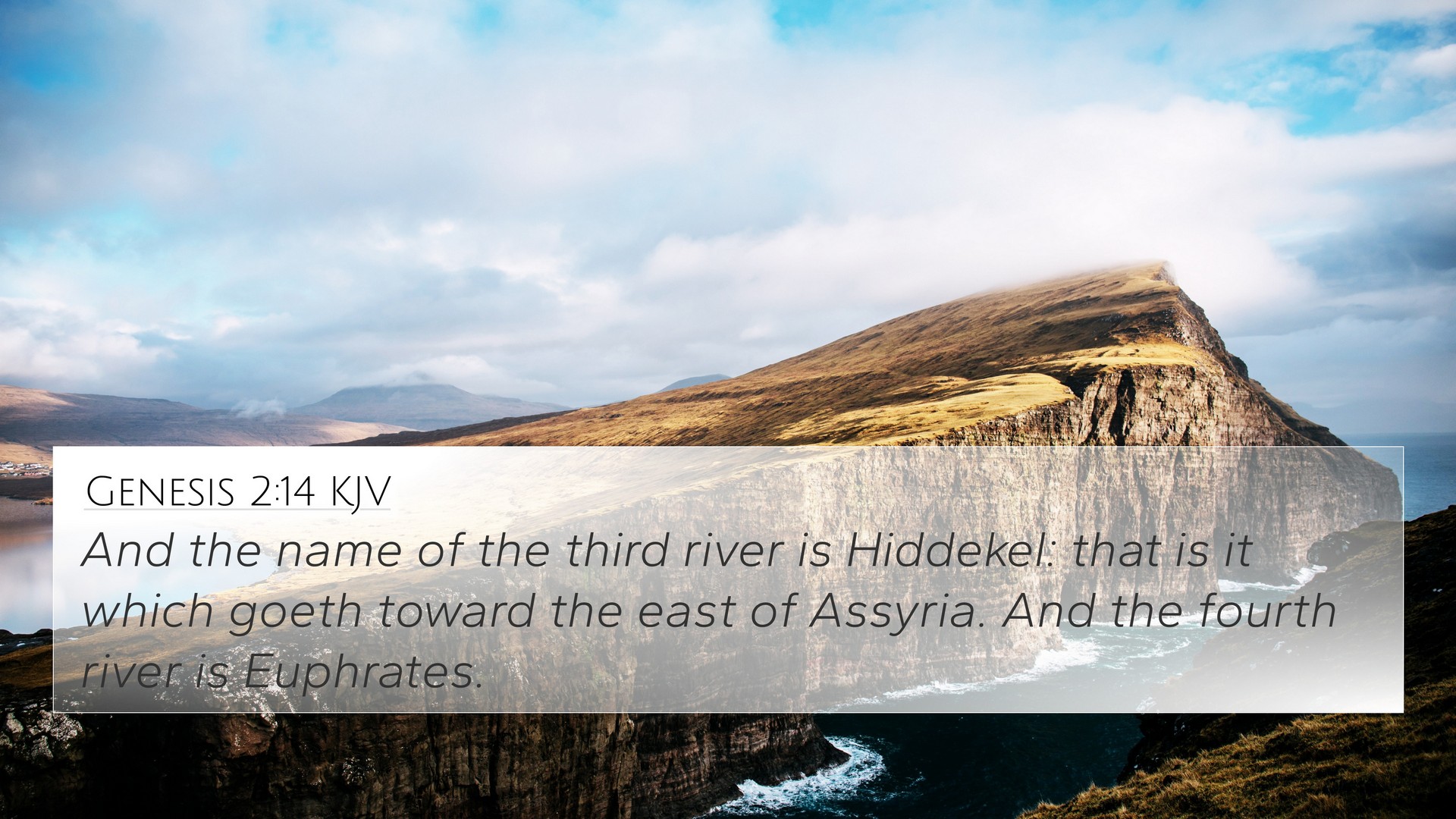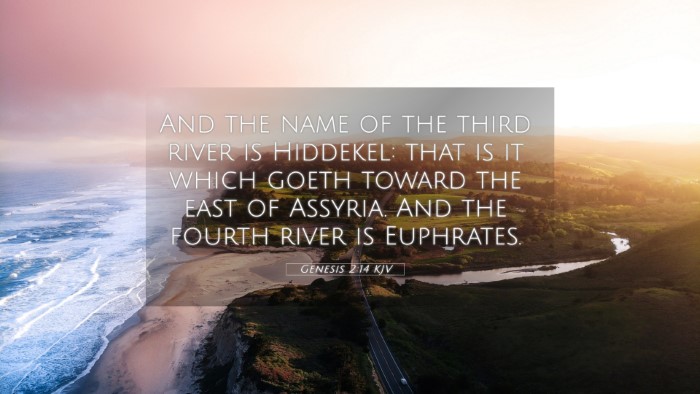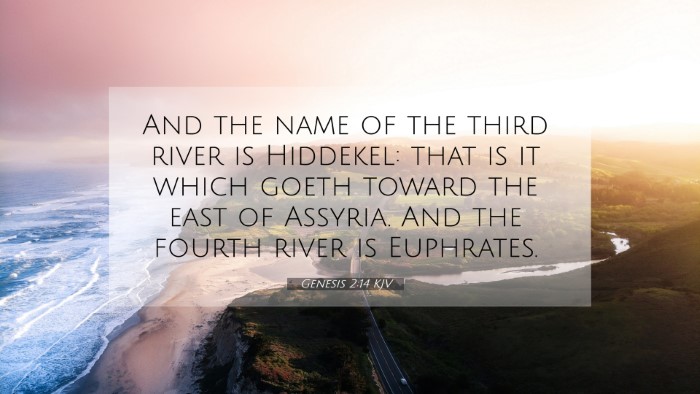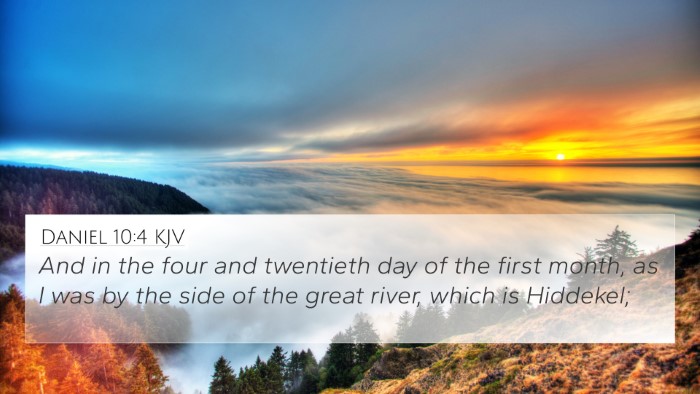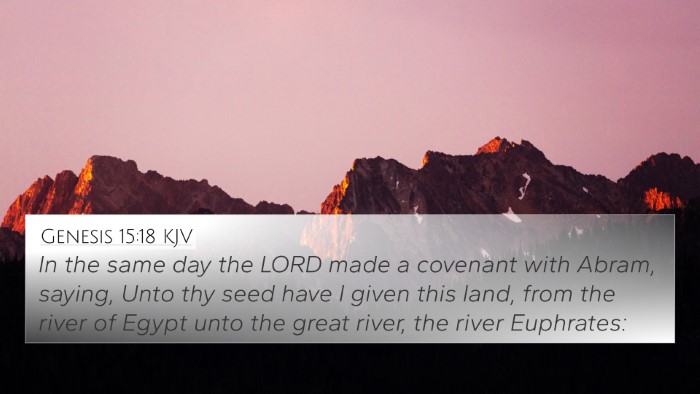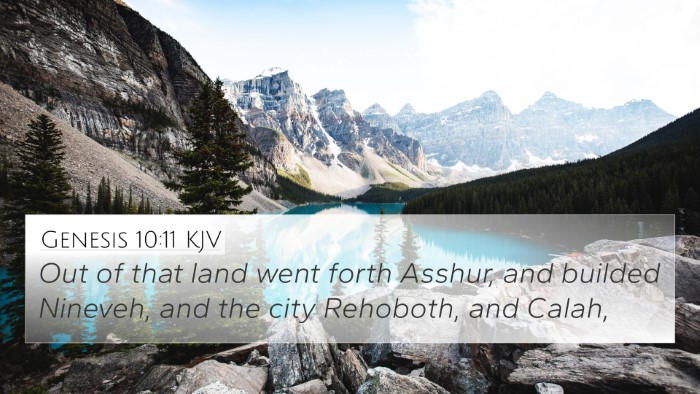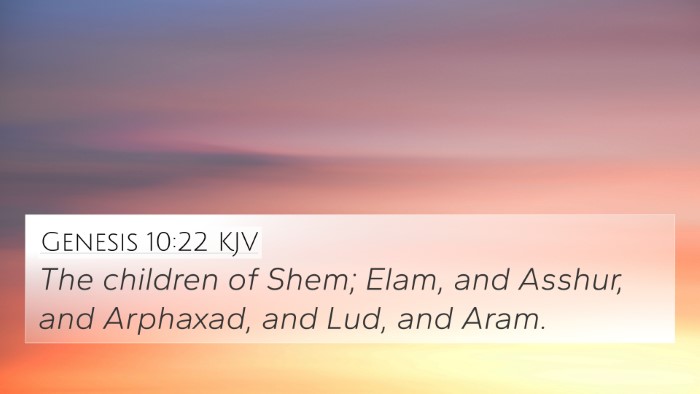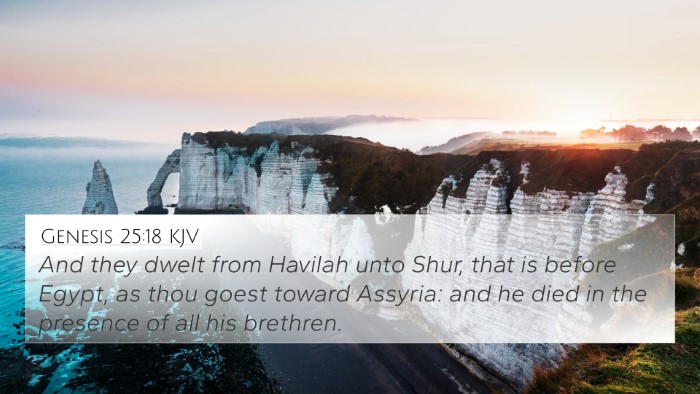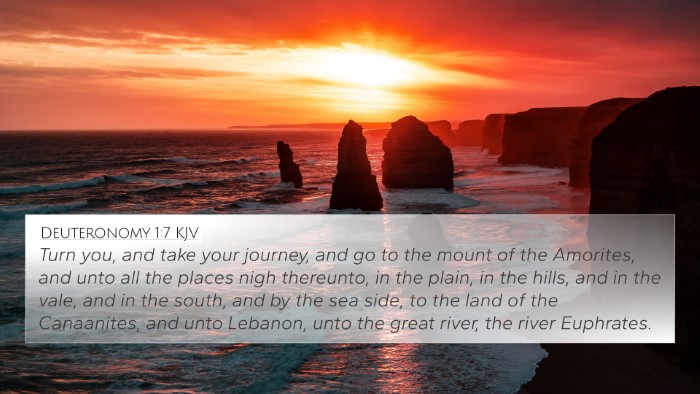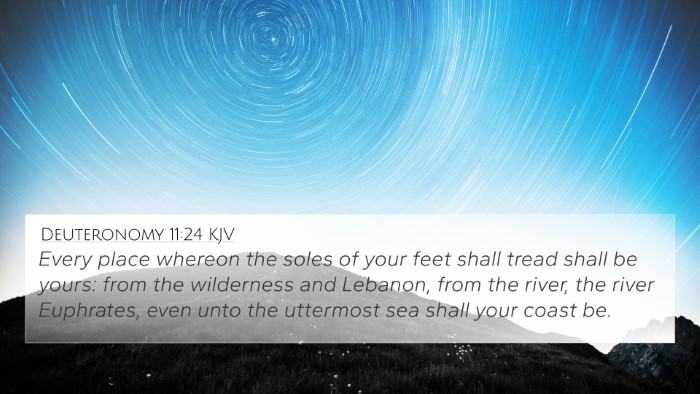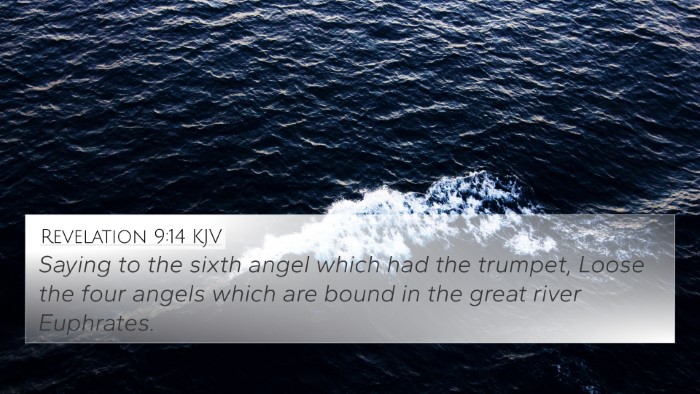Meaning of Genesis 2:14
Genesis 2:14 states, "And the name of the third river is Hiddekel: that is it which goeth toward the east of Assyria. And the fourth river is Euphrates."
This verse provides information about the geography of the Garden of Eden. It mentions the rivers that flowed from the garden, indicating a significant and fertile location. In the broader context, it illustrates God’s provision for humanity's needs through creation.
Insights from Public Domain Commentaries
-
Matthew Henry:
Henry explains that the rivers signify the bounty and the beauty of the garden prepared by God for Adam. The abundance of water from these rivers symbolizes spiritual nourishment and the provision necessary for sustaining life.
-
Albert Barnes:
Barnes elaborates that the mention of the rivers shows the lavishness of God's creation. He emphasizes that the location and names of these rivers, like Hiddekel and Euphrates, hold importance for understanding the geography in relation to Scripture's unfolding story.
-
Adam Clarke:
Clarke provides insights into the historical and etymological significance of the river names. He notes that Hiddekel corresponds to the Tigris River, highlighting the connection between the ancient civilizations flourished near these rivers and God's early interactions with humanity.
Cross-References for Genesis 2:14
Genesis 2:14 features connections to several other Bible verses that help illuminate its meaning:
- Genesis 2:10: Discusses the rivers flowing out of Eden.
- Ezekiel 47:1-12: Offers a vision of a river flowing from the temple, paralleling the themes of life and sustenance.
- Revelation 22:1-2: Describes the river of life in the New Jerusalem, creating a thematic link to Eden.
- Isaiah 11:9: The earth being filled with the knowledge of the Lord, akin to how the rivers nourished the garden.
- Psalms 46:4: Speaks of a river whose streams make glad the city of God, enhancing the understanding of divine provision.
- John 7:38: Jesus speaks of living water, tying back to the theme of life-giving streams in Genesis.
- Revelation 21:6: The promise of water of life, echoing the rivers' significance in the creation narrative.
Thematic Connections and Analysis
The rivers mentioned in Genesis 2:14 are not merely geographic markers; they serve as symbols of God's provision and a foreshadowing of spiritual abundance that is seen throughout Scripture. The comparison of these flowing waters in various biblical texts reveals a profound truth about God's intention to sustain and nurture His creation.
Applications for Bible Study
When studying Genesis 2:14, it is valuable to apply tools for Bible cross-referencing. By consulting a Bible concordance or a cross-reference guide, one can explore the thematic connections between this verse and others, thereby enriching one's understanding of biblical narratives.
Understanding the connections between Bible verses provides deeper insights into God's overarching plan. This can lead to a more profound appreciation for how the Old and New Testaments dialogue with one another, presenting a cohesive narrative of divine purpose.
Conclusion
Genesis 2:14 invites readers to contemplate the beauty and significance of God's creation. Through careful study and cross-referencing, one can discover a wealth of insights that connect this verse to broader biblical themes of provision, sustenance, and salvation.
Utilizing comprehensive Bible cross-reference materials can enhance your study, yielding deeper theological insights and understanding the interconnections throughout Scripture.
